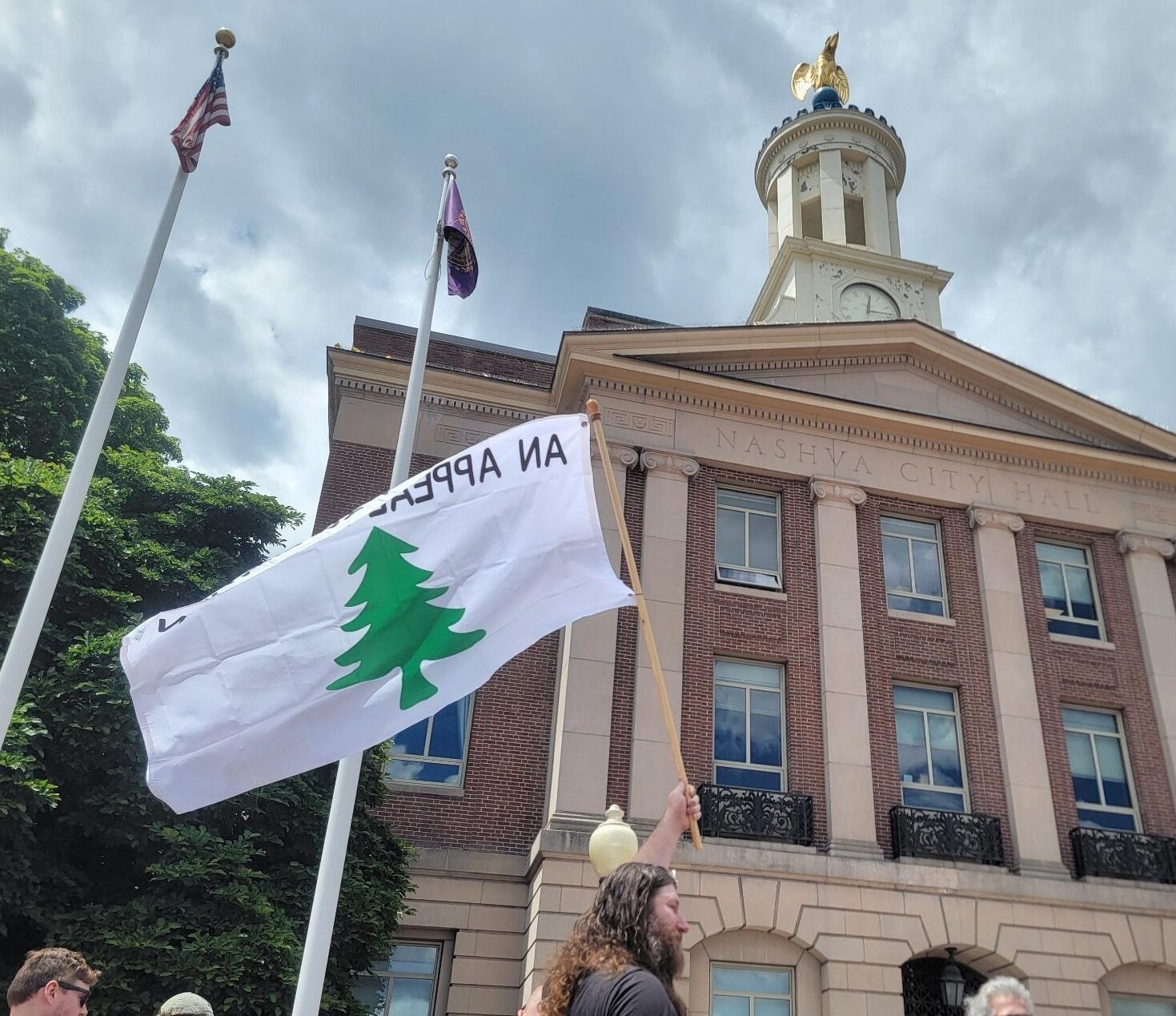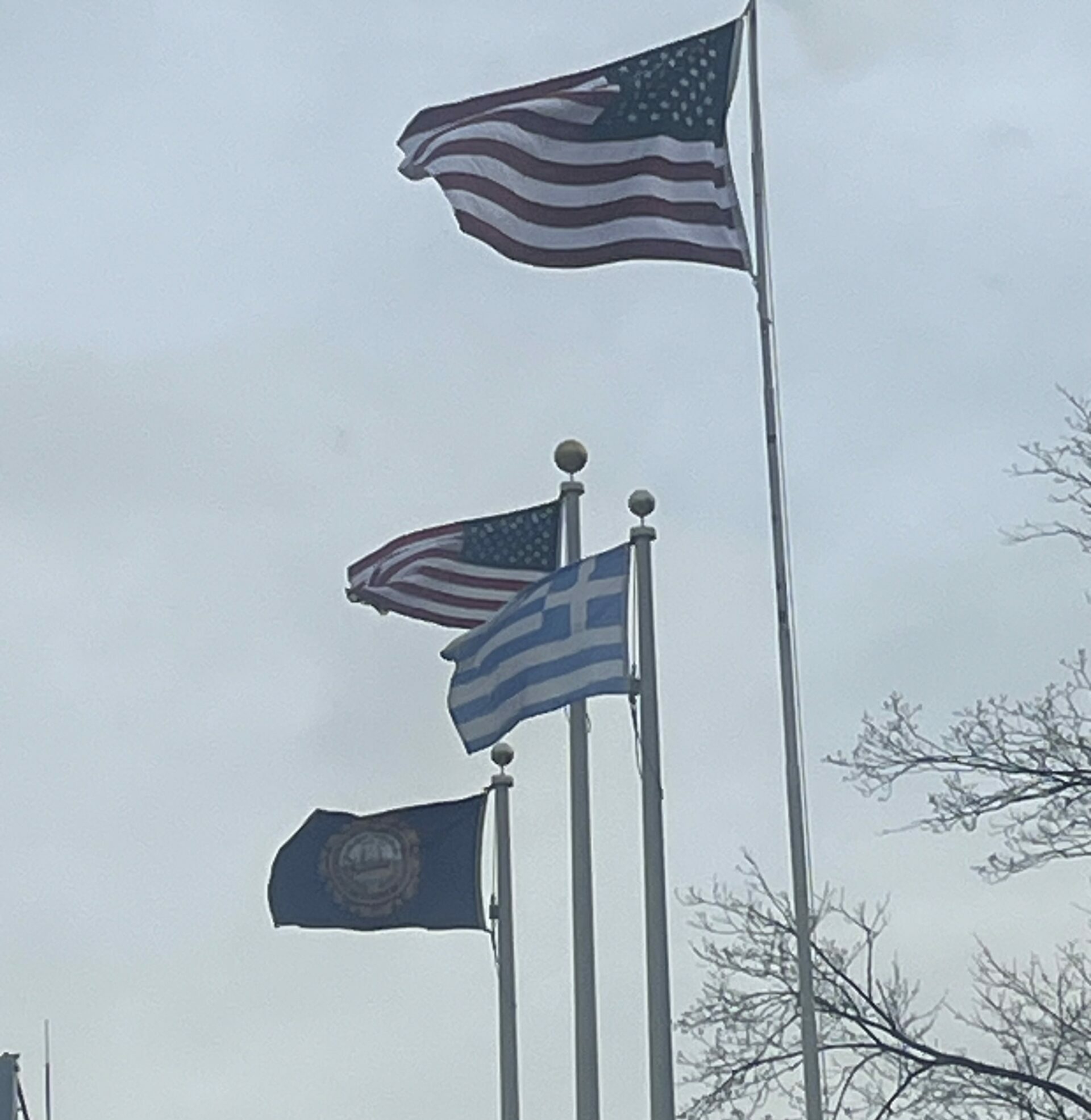AG Report: Nashua’s Nongfu Spring Deal Broke No Laws, Raised Red Flags

The New Hampshire Attorney General’s Office says no laws were broken when state and local officials worked with China-based Nongfu Spring ahead of the company’s controversial $67 million purchase of a Nashua property.
But Gov. Kelly Ayotte says she’s deeply concerned about a company tied to China’s communist regime making a major infrastructure investment in the Granite State.
“Foreign adversaries like China should not be doing business in New Hampshire, and I am taking action today to ensure it,” Ayotte said in a statement released minutes after the report went public. “In addition to a new law banning these types of land purchases, I will issue executive orders to ensure the Chinese Communist Party and other hostile groups are not doing business with our state government.”
Nongfu Spring is owned by Zhong Shanshan, China’s richest man and a billionaire with documented ties to the ruling Chinese Communist Party. As a large private business in China, Nongfu operates under Chinese regulatory systems. That means it must comply with national standards and oversight by government authorities.
On Monday, Attorney General John Formella’s office released its report on the Nongfu Spring purchase. While no laws were broken, the report faulted an unnamed Department of Business and Economic Affairs (BEA) employee for failing to disclose the company’s Chinese ownership to supervisors for several months after the process began.

Mike Bergeron
The BEA business development manager in question has worked at the agency since 1997. Public records show Mike Bergeron, one of three BEA business development managers and the only one with that tenure, matches that description. NHPR has also identified Bergeron as the manager in question.
Bergeron did not respond to a request for comment on Monday.
According to the report, Bergeron did not inform his supervisors about the pending transaction until December 2024 and did not disclose that the buyer was Chinese-owned until January 2025—despite knowing as early as June 2024 that Zhong was connected to Nongfu. That summer, Bergeron helped organize a tour of the Nashua site for Zhong and his entourage, coordinating with local officials including Nashua Administrative Services Director Tim Cummings.
Formella’s report, requested by Ayotte amid mounting controversy over Nongfu’s operations in Nashua, clears Bergeron, BEA, and Nashua officials of any lawbreaking. At the time, there was no law preventing a Chinese-based company from purchasing property in New Hampshire.
Nongfu’s representatives told Bergeron they were seeking approval from the U.S. Treasury’s Committee on Foreign Investment in the United States (CFIUS), but Formella said he could not confirm the status of that review. His report also notes the FBI is currently investigating Nongfu and its plans in New Hampshire.
And the report concludes that the nature of the deal, along with evolving legal standards in Washington, D.C., indicate that CFIUS review is warranted.
“On Dec. 9, 2024, the Department of Treasury’s Office of Investment Security published a final rule that expanded CFIUS’s ability to review certain real estate transactions by foreign persons. CFIUS review of the Nongfu Spring transaction thus would have been advisable in the context of the Nashua property’s proximity to Joint Base Cape Cod, which is listed as 87 miles from the purchase site,” according to the report.
“A CFIUS analysis as a matter of course should have been conducted and documented prior to the completion of the transaction.”
Since the Nongfu purchase became public, state lawmakers have passed legislation banning companies from “hostile” nations — including China, Russia, North Korea, and Iran — from acquiring property in New Hampshire.
On Monday, Ayotte went further, signing two executive orders: one prohibiting the sale of state-owned land to entities from those countries, and another banning the state from purchasing technology from companies based there.
“China, Russia, Iran and other countries like them should not be doing business in the state of New Hampshire — it’s as simple as that,” Ayotte said. “We must do everything we can to protect our state from foreign adversaries, and it starts with making sure they cannot access sensitive data, do business, or purchase property here. Under my administration, New Hampshire will always do our part to keep America safe.”
Formella’s report also addressed one lingering question: Why did Nongfu pay $67 million for 80 Northwest Blvd., a property valued at about $15 million?
“According to a number of individuals interviewed for this report, the selling price is not widely regarded as exceeding market value,” the report stated. “In fact, the property was reportedly one of the few structures of its size in New England available at the time that was capable of meeting the bottling company’s structural and technical requirements.”
Nongfu initially proposed a $200 million investment in the Nashua facility, promising to create hundreds of jobs. But according to the report, the company halted all activity in May, emailing Nashua’s planning office to announce a “pause” in development.
“Due to evolving global trade and investment conditions, our client is conducting a broader reassessment of project feasibility and associated costs. As part of this review, they have decided to pause all entitlements and permitting activities,” the email stated.
The pause may have more to do with Washington, D.C., than Concord. President Donald Trump reignited his economic confrontation with China earlier this year, triggering tariff swings between 145 percent and 30 percent on Chinese imports. His administration also began arresting Chinese nationals studying at U.S. colleges, moves that further strained relations between Washington and Beijing.








